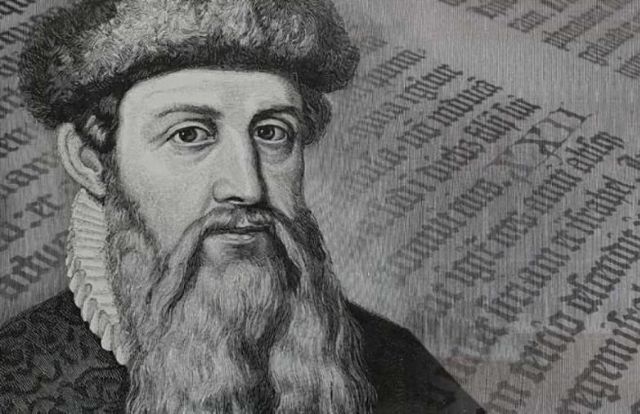
If we were to ponder the question of who the greatest man in the world is, it would ignite a passionate debate. Throughout history, there have been exceptional individuals who have left an indelible mark on humanity. In this blog, we will explore the top 35 greatest man in the world, examine their incredible contributions, and delve into the question of who holds the title of the greatest person in the world.
Who is the Greatest Man of all Mankind?
The definition of the greatest men in the world can vary based on cultural, historical, and personal perspectives, as different individuals have left their mark in unique and transformative ways. However, a few names consistently stand out due to their profound impact on world history and society. Among them are Mahatma Gandhi, who championed nonviolent resistance and played a pivotal role in India’s independence; Nelson Mandela, an anti-apartheid revolutionary who became a global symbol of peace, equality, and justice; the Wright Brothers, pioneers of aviation who revolutionized transportation and connected the world like never before; and Albert Einstein, whose groundbreaking contributions to theoretical physics forever altered our understanding of the universe. These individuals exemplify vision, perseverance, and the ability to inspire change on a global scale.
| Sr. No | Name | Date of Birth | Died | Field of Work |
| 1 | Cai Lun | 50 CE | 121 CE | Inventor of paper |
| 2 | Aristotle | 384 BC | 322 BC | Philosopher, polymath |
| 3 | Socrates | 470/469 BC | 399 BC | Philosopher |
| 4 | Alexander the Great | July 356 BC | June 323 BC | King, military leader |
| 5 | Johannes Gutenberg | c. 1393–1406 | February 3, 1468 | Invented printer |
| 6 | Leonardo da Vinci | April 15, 1452 | May 2, 1519 | Painter, scientist, inventor |
| 7 | William Shakespeare | April 23, 1564 | April 23, 1616 | Playwright, poet, actor |
| 8 | Galileo Galilei | February 15, 1564 | January 8, 1642 | Astronomy, physics, mathematics |
| 9 | Isaac Newton | January 4, 1643 | March 31, 1727 | Mathematics, physics |
| 10 | Adam Smith | June 16, 1723 | July 17, 1790 | Economist, philosopher |
| 11 | George Washington | February 22, 1732 | December 14, 1799 | U.S. President, military leader |
| 12 | Ludwig van Beethoven | December 1770 | March 26, 1827 | Composer |
| 13 | Michael Faraday | September 22, 1791 | August 25, 1867 | Electric power generation |
| 14 | Charles Darwin | February 12, 1809 | April 19, 1882 | Naturalist, biologist |
| 15 | Abraham Lincoln | February 12, 1809 | April 15, 1865 | U.S. President, political leader |
| 16 | Karl Marx | May 5, 1818 | March 14, 1883 | Philosopher, economist, political theorist |
| 17 | Louis Pasteur | December 27, 1822 | September 28, 1895 | Chemist, microbiologist |
| 18 | Thomas Edison | February 11, 1847 | October 18, 1931 | Inventor, businessman |
| 19 | Nikola Tesla | July 10, 1856 | January 7, 1943 | Inventor, electrical engineer, mechanical engineer |
| 20 | Sigmund Freud | May 6, 1856 | September 23, 1939 | Neurologist, psychoanalyst |
| 21 | Swami Vivekananda | January 12, 1863 | July 4, 1902 | Spiritual leader who promoted human unity and service to mankind |
| 22 | Henry Ford | July 30, 1863 | April 7, 1947 | Industrialist, founder of Ford Motor Company |
| 23 | Wright Brothers | 1867 (Wilbur), 1871 (Orville) | 1912 (Wilbur), 1948 (Orville) | Aviation pioneers |
| 24 | Mahatma Gandhi | October 2, 1869 | January 30, 1948 | Indian independence movement, nonviolent resistance |
| 25 | Winston Churchill | November 30, 1874 | January 24, 1965 | Statesman, military leader, writer |
| 26 | Albert Einstein | March 14, 1879 | April 18, 1955 | Theoretical physics |
| 27 | Franklin D. Roosevelt | January 30, 1882 | April 12, 1945 | U.S. President, political leader |
| 28 | Dr. B.R. Ambedkar | April 14, 1891 | December 6, 1956 | Architect of India’s Constitution |
| 29 | Christopher Columbus | December 21, 1903 | May 20, 1506 | Explorer |
| 30 | Alan Turing | June 23, 1912 | June 7, 1954 | Mathematician, computer scientist |
| 31 | Jonas Salk | October 28, 1914 | June 23, 1995 | Developed the polio vaccine, saving millions of lives |
| 32 | Nelson Mandela | July 18, 1918 | December 5, 2013 | Anti-apartheid revolutionary, political leader, philanthropist |
| 33 | Martin Luther King Jr. | January 15, 1929 | April 4, 1968 | Civil rights leader, activist |
| 34 | Kofi Annan | April 8, 1938 | August 18, 2018 | Diplomat, UN Secretary-General |
| 35 | Stephen Hawking | January 8, 1942 | March 14, 2018 | Cosmology, Black Holes, and Theoretical Physics |
List of Top 35 Greatest Man In The World
1. Cai Lun (50 CE–121 CE)
Cai Lun was a Chinese inventor credited with the creation of paper, one of the most significant technological advancements in human history. Before his innovation, people used materials like bamboo, silk, or animal hides for writing, which were expensive and cumbersome. Cai Lun’s method involved using tree bark, hemp, cloth rags, and fishing nets to create a lightweight and affordable writing material. This invention revolutionized communication, education, and record-keeping, eventually spreading across the world. Cai Lun’s contribution is considered one of the four great inventions of ancient China, fundamentally shaping the progress of human civilization.
2. Aristotle (384 BCE–322 BCE)
Aristotle was a Greek philosopher and polymath, widely regarded as one of the most influential thinkers in Western history. He made groundbreaking contributions to numerous disciplines, including philosophy, biology, ethics, politics, metaphysics, and logic. Aristotle’s works formed the foundation of Western intellectual traditions and shaped medieval scholarship. His concept of virtue ethics, which emphasizes character and moral virtue, continues to be a cornerstone of philosophical thought. As a teacher of Alexander the Great, Aristotle also influenced one of history’s greatest military leaders, ensuring his ideas had a lasting impact on governance and culture across the ancient world.
3. Socrates (470/469 BCE–399 BCE)
Socrates, often referred to as the father of Western philosophy, revolutionized the way people think about ethics, morality, and knowledge. He introduced the Socratic method, a form of questioning designed to stimulate critical thinking and illuminate ideas. Socrates focused on self-examination and the pursuit of wisdom, famously declaring that “an unexamined life is not worth living.” Despite not leaving behind written works, his teachings were recorded by his student Plato, and his ideas laid the groundwork for modern philosophical inquiry. Socrates’ unwavering commitment to his principles, even in the face of execution, has made him a symbol of intellectual integrity.
4. Alexander the Great (356 BCE–323 BCE)
Alexander the Great was a Macedonian king and military genius who created one of the largest empires in ancient history, stretching from Greece to Egypt and as far as India. Tutored by Aristotle, Alexander combined his intellectual prowess with strategic brilliance on the battlefield, uniting the Greek city-states and defeating the Persian Empire. Beyond his conquests, Alexander facilitated the spread of Greek culture, language, and ideas, laying the foundation for the Hellenistic period. His efforts to integrate the diverse cultures of his empire fostered a unique era of scientific, artistic, and philosophical advancement.
5. Johannes Gutenberg (c. 1400–1468)
Johannes Gutenberg was a German inventor who transformed the world by creating the printing press with movable type. His invention allowed books to be produced on a large scale, significantly reducing their cost and making knowledge accessible to the masses. The Gutenberg Bible, his most famous printed work, marked the beginning of a new era in information dissemination. His invention is credited with fueling the Renaissance, the Reformation, and the Scientific Revolution by enabling the rapid spread of ideas and fostering literacy and education worldwide.
6. Leonardo da Vinci (1452–1519)
Leonardo da Vinci was a Renaissance polymath whose genius spanned art, science, and invention. Known as the quintessential “Renaissance Man,” his most famous paintings, such as The Mona Lisa and The Last Supper, showcase his mastery of technique and profound understanding of human emotion. Beyond art, da Vinci’s notebooks reveal groundbreaking studies in anatomy, engineering, and flight, centuries ahead of their time. His ability to merge art and science made him a symbol of intellectual curiosity and creativity, influencing countless generations of thinkers and creators.
7. William Shakespeare (1564–1616)
William Shakespeare, often called the Bard of Avon, is regarded as the greatest playwright and poet in the English language. His works, including plays such as Hamlet, Romeo and Juliet, and Macbeth, explore universal themes of love, power, ambition, and human nature. Shakespeare’s influence extends beyond literature; his profound understanding of the human condition and his innovative use of language have shaped modern storytelling and drama. His plays remain timeless, performed and studied across the globe, and his contributions to the English language, including coining over 1,700 words, are unparalleled.
8. Galileo Galilei (1564–1642)
Galileo Galilei, often called the “Father of Modern Science,” was an Italian astronomer, physicist, and mathematician. He made groundbreaking discoveries, including the laws of motion and improvements to the telescope, which allowed him to confirm the heliocentric model of the solar system. Galileo’s advocacy for science based on observation and experimentation challenged traditional beliefs and laid the foundation for modern scientific methodology. Despite facing opposition from the Church, Galileo’s work inspired generations of scientists and remains a cornerstone of scientific thought.
9. Isaac Newton (1643–1727)
Isaac Newton was an English mathematician, physicist, and astronomer whose discoveries transformed our understanding of the natural world. His laws of motion and universal gravitation provided a framework for classical mechanics, while his work in optics and mathematics, including the development of calculus, opened new frontiers in science. Newton’s Principia Mathematica is considered one of the most important scientific works ever written, shaping the course of physics and astronomy for centuries. His genius continues to influence countless scientific disciplines today.
10. Adam Smith (1723–1790)
Adam Smith, often referred to as the “Father of Economics,” was a Scottish economist and philosopher who laid the foundation for modern economic theory. His seminal work, The Wealth of Nations, introduced concepts such as the division of labor, free markets, and the “invisible hand” guiding economic activity. Smith’s ideas on capitalism and economic growth remain influential, shaping policies and debates in economics and political science.
11. George Washington (1732–1799)
George Washington, often referred to as the “Father of the United States,” was the first President of the United States and the commander-in-chief of the Continental Army during the American Revolutionary War. His leadership played a pivotal role in securing American independence from British rule. Washington’s presidency set many precedents for the U.S. government, including the two-term limit for presidents and the peaceful transfer of power. His steadfast dedication to democracy, unity, and the rule of law has made him a symbol of integrity and leadership in American history.
12. Ludwig van Beethoven (1770–1827)
Ludwig van Beethoven was a German composer and pianist who is widely regarded as one of the greatest musical geniuses of all time. His works, such as Symphony No. 9, Moonlight Sonata, and Fidelio, revolutionized classical music and bridged the transition between the Classical and Romantic eras. Despite losing his hearing later in life, Beethoven continued to compose some of his most celebrated masterpieces, demonstrating resilience and creative brilliance. His music remains a timeless testament to the power of human spirit and emotion.
13. Michael Faraday (1791–1867)
Michael Faraday was an English scientist whose groundbreaking work in electromagnetism and electrochemistry laid the foundation for modern physics and electrical engineering. His discovery of electromagnetic induction is the principle behind the electric transformer and generator, which are critical to today’s technology. Faraday’s deep commitment to scientific education and his ability to explain complex phenomena in simple terms made him a revered figure in the scientific community and beyond.
14. Charles Darwin (1809–1882)
Charles Darwin was an English naturalist and biologist best known for his theory of evolution by natural selection, which he presented in his book On the Origin of Species. Darwin’s work fundamentally changed our understanding of life on Earth, providing a scientific explanation for the diversity of species and their adaptation to the environment. His ideas were revolutionary, influencing not only biology but also fields like anthropology, psychology, and philosophy. Darwin remains one of the most important figures in the history of science.
15. Abraham Lincoln (1809–1865)
Abraham Lincoln, the 16th President of the United States, is celebrated for his leadership during the American Civil War and his commitment to ending slavery. His Emancipation Proclamation and the passage of the 13th Amendment abolished slavery in the U.S., marking a monumental step toward equality and justice. Lincoln’s ability to unite a divided nation and his dedication to democracy have made him a symbol of courage, integrity, and perseverance in the face of adversity.
16. Karl Marx (1818–1883)
Karl Marx was a German philosopher, economist, and political theorist whose ideas have had a profound influence on global history. His works, particularly The Communist Manifesto and Das Kapital, laid the foundation for Marxism, a critique of capitalism and a call for social and economic reform. Marx’s theories inspired revolutionary movements around the world, shaping political ideologies and policies. Though controversial, his ideas continue to provoke debate and influence contemporary thought on economics and society.
17. Louis Pasteur (1822–1895)
Louis Pasteur was a French microbiologist and chemist who made significant contributions to medicine and public health. He developed the germ theory of disease, which revolutionized medical science and led to advancements like sterilization and hygiene. Pasteur is also credited with inventing the process of pasteurization and developing vaccines for rabies and anthrax. His work saved countless lives and laid the groundwork for modern microbiology and immunology.
18. Thomas Edison (1847–1931)
Thomas Edison, an American inventor and businessman, is best known for his inventions such as the phonograph, the motion picture camera, and the electric light bulb. With over 1,000 patents to his name, Edison transformed industries and improved daily life through innovation. His creation of the first industrial research lab paved the way for systematic technological advancements. Edison’s legacy as a pioneer of innovation continues to influence the world today.
19. Nikola Tesla (1856–1943)
Nikola Tesla was a Serbian-American inventor and engineer whose work in electrical engineering and electromagnetism revolutionized the modern world. He is best known for his contributions to the development of alternating current (AC) electrical systems, which became the standard for power distribution. Tesla’s inventions, including the Tesla coil and wireless communication technologies, laid the foundation for many modern innovations. Despite facing challenges in his lifetime, Tesla’s visionary ideas have cemented his place as one of history’s greatest inventors.
20. Sigmund Freud (1856–1939)
Sigmund Freud was an Austrian neurologist and the founder of psychoanalysis, a groundbreaking method for understanding and treating mental illness. Freud introduced theories about the unconscious mind, the role of dreams, and the influence of childhood experiences on behavior. Concepts like the id, ego, and superego, as well as defense mechanisms, remain central to psychology. While his ideas have been debated and evolved over time, Freud’s impact on psychiatry, psychology, and culture is undeniable.
21. Swami Vivekananda (1863–1902)
Swami Vivekananda was an Indian Hindu monk and spiritual leader who played a key role in introducing Indian philosophies like Vedanta and Yoga to the Western world. He is best remembered for his inspiring speech at the Parliament of the World’s Religions in Chicago in 1893, where he emphasized the unity of all religions and the importance of universal brotherhood. Vivekananda’s teachings continue to inspire millions to pursue spiritual growth and self-improvement.
22. Henry Ford (1863–1947)
Henry Ford was an American industrialist and the founder of the Ford Motor Company. He revolutionized the automobile industry by introducing the assembly line production method, which made cars affordable to the average American. His Model T car became a symbol of industrial progress and transformed transportation worldwide. Ford’s vision of mass production and efficiency had a profound impact on the manufacturing sector and modern consumer culture.
23. Wright Brothers (Wilbur: 1867–1912, Orville: 1871–1948)
Wilbur and Orville Wright, commonly known as the Wright Brothers, were American inventors and aviation pioneers who achieved the first powered, sustained, and controlled airplane flight in 1903. Their invention revolutionized transportation and opened the skies to humanity. The Wright Brothers’ ingenuity and determination laid the foundation for the modern aviation industry, making them icons of innovation and exploration.
24. Mahatma Gandhi (1869–1948)
Mahatma Gandhi, also known as the “Father of the Nation” in India, was a leader in the Indian independence movement against British colonial rule. He is renowned for his philosophy of nonviolence (Ahimsa) and civil disobedience, which inspired peaceful resistance movements worldwide. Gandhi’s leadership in campaigns such as the Salt March and Quit India Movement helped India gain independence in 1947. His legacy as a champion of peace, equality, and human rights continues to influence global leaders and movements.
25. Winston Churchill (1874–1965)
Winston Churchill was a British statesman, military leader, and writer who served as the Prime Minister of the United Kingdom during World War II. His inspiring speeches, strategic leadership, and unwavering resolve played a key role in rallying the Allied forces to victory. Churchill was also a prolific writer and historian, winning the Nobel Prize in Literature in 1953. He remains one of the most iconic figures in modern history, symbolizing resilience and determination during times of crisis.
26. Albert Einstein (1879–1955)
Albert Einstein was a German-born theoretical physicist whose groundbreaking theories reshaped our understanding of the universe. His theory of relativity, encapsulated by the famous equation E=mc², revolutionized physics and led to advancements in science and technology. Einstein also made significant contributions to quantum mechanics and cosmology. Beyond his scientific achievements, Einstein was a passionate advocate for peace, human rights, and education. He remains one of the most influential scientists of all time.
27. Franklin D. Roosevelt (1882–1945)
Franklin D. Roosevelt, commonly known as FDR, was the 32nd President of the United States and one of its most influential leaders. He led the country through the Great Depression and World War II, implementing the New Deal to provide economic relief and reform. FDR’s leadership during World War II was instrumental in securing victory for the Allies. Serving four terms, he remains the longest-serving U.S. president and a symbol of resilience and effective governance.
28. Dr. B.R. Ambedkar (1891–1956)
Dr. B.R. Ambedkar was an Indian jurist, economist, and social reformer who played a pivotal role in drafting the Constitution of India. A champion for social justice, Ambedkar fought tirelessly against caste-based discrimination and advocated for the rights of marginalized communities. His work on social and political reform transformed Indian society, and he remains a revered figure for his contributions to equality, education, and human rights.
29. Christopher Columbus (1451–1506)
Christopher Columbus was an Italian explorer credited with opening the Americas to European exploration and colonization. In 1492, under the sponsorship of Spain, he embarked on a voyage across the Atlantic and discovered the New World, believing it to be Asia. Though controversial due to the impact of colonization, Columbus’s expeditions marked the beginning of an era of global exploration and the exchange of goods, cultures, and ideas between continents.
30. Alan Turing (1912–1954)
Alan Turing was an English mathematician, logician, and cryptanalyst who is widely regarded as the father of computer science and artificial intelligence. During World War II, Turing played a critical role in breaking the German Enigma code, significantly aiding the Allied war effort. He also conceptualized the Turing Machine, a foundational model for modern computers. Despite facing persecution due to his sexual orientation, Turing’s legacy continues to shape the fields of computing and AI.
31. Jonas Salk (1914–1995)
Jonas Salk was an American medical researcher and virologist who developed the first successful polio vaccine in 1955. His groundbreaking work led to the near eradication of polio, a disease that had crippled millions worldwide. Salk’s decision not to patent the vaccine, ensuring its widespread availability, demonstrated his dedication to humanity’s welfare. His contributions to public health have saved countless lives and remain a testament to the power of scientific innovation.
32. Nelson Mandela (1918–2013)
Nelson Mandela was a South African anti-apartheid revolutionary and political leader who became the first democratically elected President of South Africa in 1994. After spending 27 years in prison, Mandela emerged as a symbol of reconciliation and forgiveness. He played a crucial role in dismantling apartheid and fostering racial harmony in South Africa. Mandela’s legacy as a champion of justice, equality, and human dignity continues to inspire people worldwide.
33. Martin Luther King Jr. (1929–1968)
Martin Luther King Jr. was an American Baptist minister and civil rights activist who became a leader in the struggle for racial equality in the United States. His advocacy for nonviolent resistance and his famous “I Have a Dream” speech during the 1963 March on Washington galvanized the civil rights movement. King’s efforts led to landmark legislation such as the Civil Rights Act of 1964 and the Voting Rights Act of 1965. His vision of a just and inclusive society continues to resonate globally.
34. Kofi Annan (1938–2018)
Kofi Annan was a Ghanaian diplomat who served as the seventh Secretary-General of the United Nations from 1997 to 2006. He was the co-recipient of the 2001 Nobel Peace Prize for his efforts to promote peace, human rights, and development. Annan’s tenure at the UN was marked by his commitment to resolving conflicts, reducing poverty, and addressing global challenges such as HIV/AIDS. His leadership and vision left a lasting impact on international diplomacy.
35. Stephen Hawking (1942–2018)
Stephen Hawking was a British theoretical physicist, cosmologist, and author who made profound contributions to our understanding of black holes and the origins of the universe. His book A Brief History of Time popularized complex scientific concepts, making them accessible to the general public. Despite being diagnosed with ALS and losing most of his physical abilities, Hawking continued to work and inspire millions with his intellect, humor, and perseverance. His legacy as a scientific visionary endures.
Who are Some of the Greatest Man in History?
Beyond the top 10 mentioned above, history is replete with individuals who have shaped the world in significant ways. Here are some more great man from various fields:
Artists and Inventors
- Leonardo da Vinci – The epitome of a “Renaissance Man,” da Vinci’s contributions spanned art, science, and engineering.
- Thomas Edison – A prolific inventor, Edison’s innovations include the electric light bulb and phonograph.
Leaders and Visionaries
- Winston Churchill – The British Prime Minister during World War II, Churchill’s leadership steered the nation through tumultuous times.
- Nelson Mandela – The anti-apartheid revolutionary who became South Africa’s first Black president, symbolizing reconciliation and justice.
Writers and Thinkers
- William Shakespeare – The Bard’s literary legacy and impact on the English language and drama remain unparalleled.
- Karl Marx – The philosopher and economist whose ideas shaped communism and socialism.
Scientists and Discoverers
- Galileo Galilei was an Italian astronomer and physicist. Known for his contributions to astronomy and the scientific method.
- Charles Darwin was a biologist whose theory of evolution changed our understanding of life’s diversity.
Humanitarians and Activists
- Mahatma Gandhi – The leader of India’s nonviolent resistance against British colonial rule.
- Martin Luther King Jr. – The civil rights leader who championed racial equality in the United States.
Entertainers and Sports Icons
- Michael Jackson – The “King of Pop,” whose musical talent and influence transcended borders and cultures.
- Muhammad Ali – The boxing legend and social activist, known for his charisma and fighting prowess.
Conclusion
Our world is shaped by the brilliance, courage, and compassion of countless individuals. From scientists who unlocked the mysteries of the universe to leaders who championed freedom and equality, each person on this list has left an indelible mark on humanity. Rather than singling out a single “greatest” person, let us celebrate the diversity and collective greatness of those who have paved the way for a better world.
Read Next Blog:
What Does an Empty Fortune Cookie Mean






